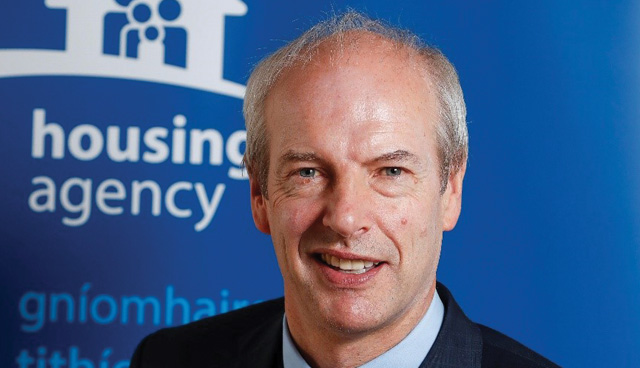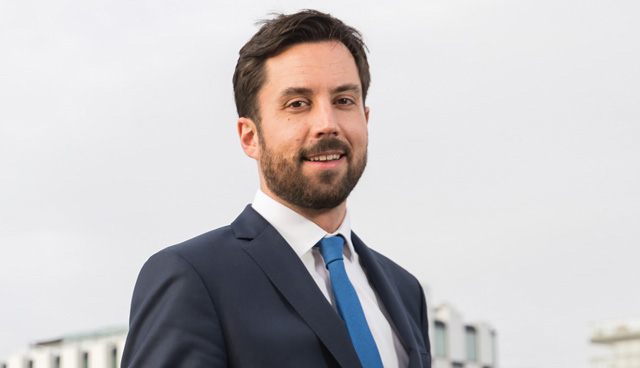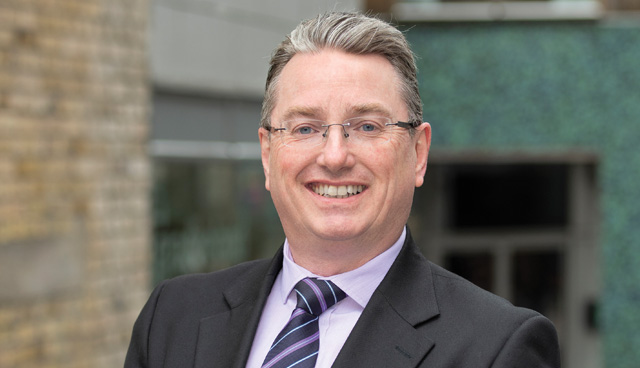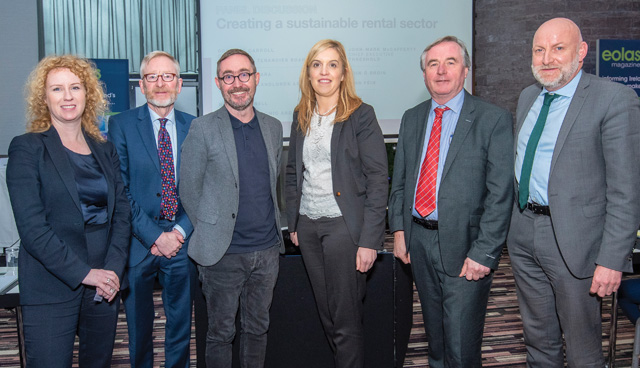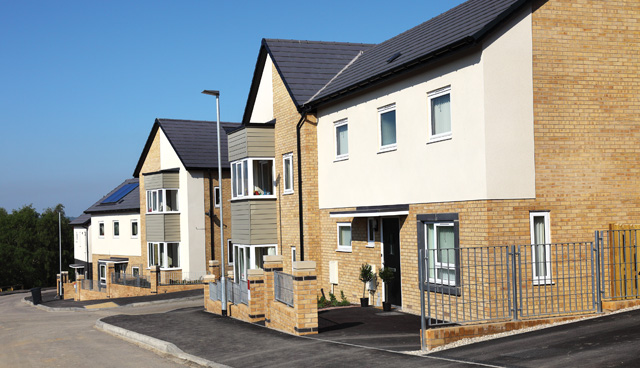
Revised Residential Tenancies Bill: Changes to the rental sector
17th May 2019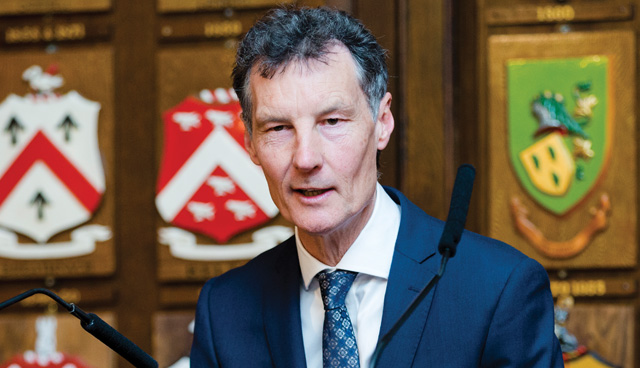
Reversing reclassification to deliver more homes
17th May 2019Housing First programme
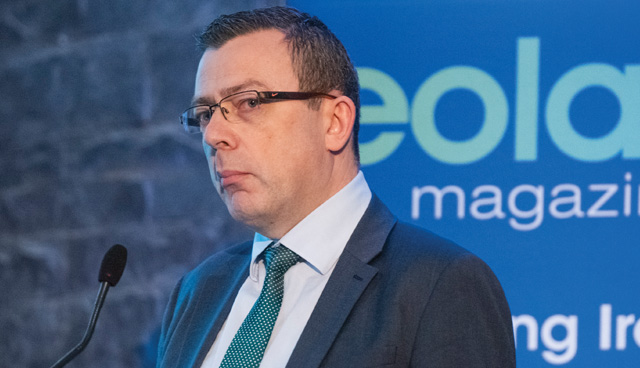

Bob Jordan, National Director of Housing First, discusses progress through the National Implementation Plan and ongoing work to create awareness and increase understanding of the plan’s ambitions.
Jordan explains that the Housing First programme is providing direct access to permanent housing without preconditions. Its national implementation plan, covering the period 2018 to 2021, underpins the Government’s commitment to provide permanent and lasting solutions to rough sleeping and long-term homelessness in Ireland.
The July 2018 Homelessness Report, published by the Department of Housing, Planning and Local Government, showed that there were 6,024 adults accessing state-funded emergency accommodation arrangements overseen by housing authorities nationally.
Of the 6,024 adults, 3,567 (59 per cent) are individuals who are homeless with the remaining adults counted amongst families who are homeless.
A total of 2,201 (62 per cent) of the 3,567 individuals who experience homelessness are in the Dublin region. The vast majority are accommodated in Supported Temporary Accommodation (STA), which includes hostels with onsite support.
Jordan explains that people who are homeless, with high support needs around mental health and substance use, face multiple barriers to exiting homelessness and this contributes to a cycle of rough sleeping, hostel use and high usage of hospital emergency departments.
The health inequalities of people who experience homelessness in Ireland are rooted in poverty and deprivation. The multiple causes and facets of health problems mean people who are homeless often have much shorter lives compared to the rest of the population.
Jordan explains: “The project is by-passing the need for shelter placement and transitional housing. What’s more, intensive, wraparound housing and health supports are provided to those accessing the programme for as long as is needed.”
According to Jordan, the Housing First approach is to engage with service users in a positive but not directive manner that promotes the belief that recovery is possible. The services provided use person-centred planning, which essentially involves organising support and treatment around an individual and their needs, rather than expecting them to adjust and adapt to the services on offer.
“Key to Housing First is providing direct access to long-term housing and then supporting the person in their home with intensive housing and health supports,” he stresses.
Significantly, services are not time limited and because individuals have mainstream tenancies, they can remain in their home and in the community where they are supported along their chosen path to recovery.
Jordan continues: “By adopting the Housing First model, Ireland has achieved the same positive results for homeless individuals as other countries. Dublin Housing First has been operating since 2014, following a successful pilot. This comprised a partnership between the four Dublin local authorities, the Heath Service Executive, Focus Ireland and Peter McVerry Trust. Rebuilding Ireland committed to expanding the programme in 2016.”
Figures provided by Jordan point to the success of Housing First to date. Towards the end of 2018, of the 232 individuals entering the programme, there had been an 86 per cent housing sustainment rate.
He points out that the challenge facing everyone involved is that of scaling-up the project. “Government’s aim in rolling out Housing First nationwide is to reduce and end chronic homelessness,” says Jordan. “A national implementation plan has recently been jointly launched by ministers for housing and health. Housing First will be delivered in every county over the next three years. Targets have been developed based on an identification of current needs.
“The plan envisages up to 1,000 people benefitting directly from the programme by 2021.”
Targeting Housing First at the most vulnerable homeless individuals will always remain a priority for the programme, he says: “Adults with complex health needs cannot exit homelessness or sustain tenancies without intensive support. Housing First supports access to treatment, harm reduction and behavioural changes. Significantly, 1,349 of approximately 3,500 individuals were identified with high support needs during the preparatory stages of the programme.”
The National Director states that Housing First services need to be part of an integrated homelessness strategy to be truly effective. The evidence for its effectiveness is stronger than any other intervention targeting rough sleepers and individuals who are homeless in Ireland.
He explains that Housing First has delivered very positive housing outcomes for a group whose needs have not been met by mainstream homeless services. While flexibility is required to adapt the approach to local conditions, it is important to follow the main principles of Housing First and preserve ‘fidelity’ to the original evidence-based model.
“Housing First is supported by homeless exchequer and HSE funding. A fund of around €6 million allocated under Service Reform Fund is supporting the programme’s rollout in Cork, Limerick, Galway, Waterford and the enhancement of health supports for Housing First in Dublin” he adds.
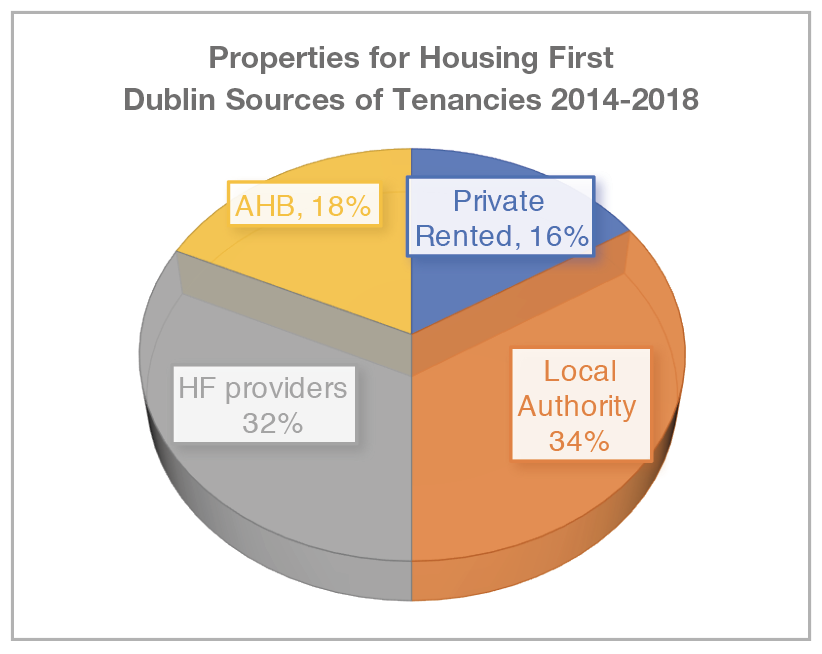
With regard to the type of properties required under the Housing First project, Jordan says that its pace of delivery is dictated by the availability of suitable scatter-site housing: “A visible pipeline of one-person social housing for Housing First is required. Local Authorities, Approved Housing Bodies and the Housing Agency all have a role to play. The schemes of letting priorities will also need to be reviewed.”
During the period 2014 to 2018 social housing provided by the Dublin local authorities, the Housing First providers, and various housing bodies accounted for over 80 per cent of tenancies, with less than 20 per cent originating in the private rented sector.
“Putting the needs of service users first will always be at the heart of solution,” adds Jordan. “We must also learn from the lived experience of those utilising the programme. Beneficiaries must also contribute to judging the outcomes generated by Housing First.”
Looking to the future, the Housing First Director points to the need for creating awareness and increasing understanding of what the Housing First national implementation plan is all about.
“We have had regional meetings with local authorities and the Health Service Executive to understand housing and health support needs. Tender processes for Housing First in Cork, Galway, Limerick and re-tendering of Dublin are now underway.
“We are consulting with international experts on the further implementation of the programme. An action researcher is currently under recruitment. Social integration measures being explored to help us further expand the range of services that can be offered by Housing First.”
International studies have shown that those who are chronically homeless tend to use emergency accommodation at proportions far in excess of their percentage of the homeless population.
Jordan confirms that by committing to providing housing with intensive supports to vulnerable individuals who experience homelessness, the long-term use of emergency accommodation by these individuals and consequently the overall need for such facilities in the first place should be reduced.
He says that by expanding Housing First to every region of Ireland, it will bring the lasting benefits currently experienced principally in the Dublin region to every city and town where it is needed.
He concludes: “We are working towards a system where housing with intensive supports becomes the primary response to long-term homelessness.
“We know that stable housing is a platform for recovery, health and wellbeing. Housing First represents a new and tailored exit route out of homelessness. It is helping to change practices that make and keep people homeless.”

